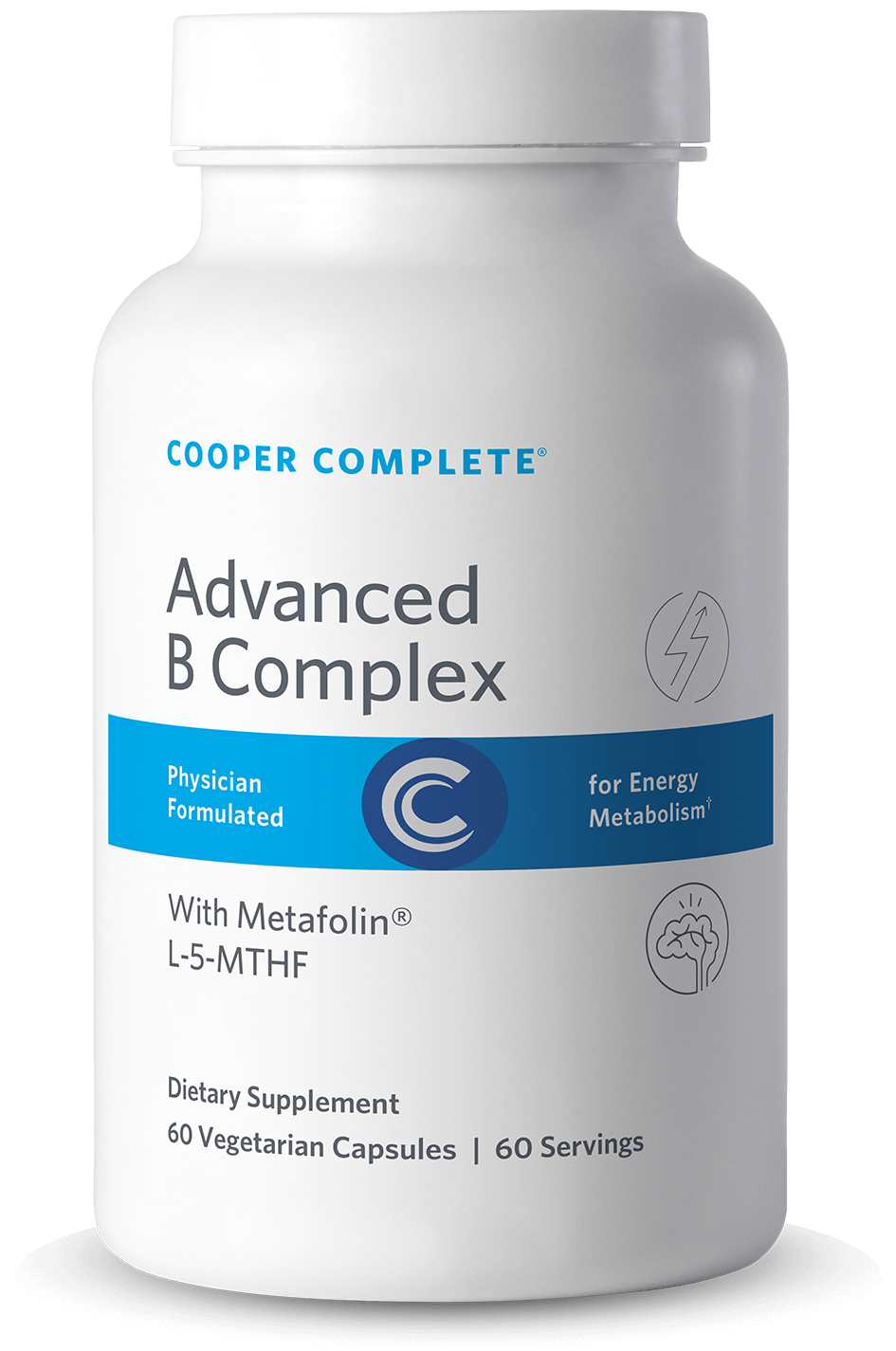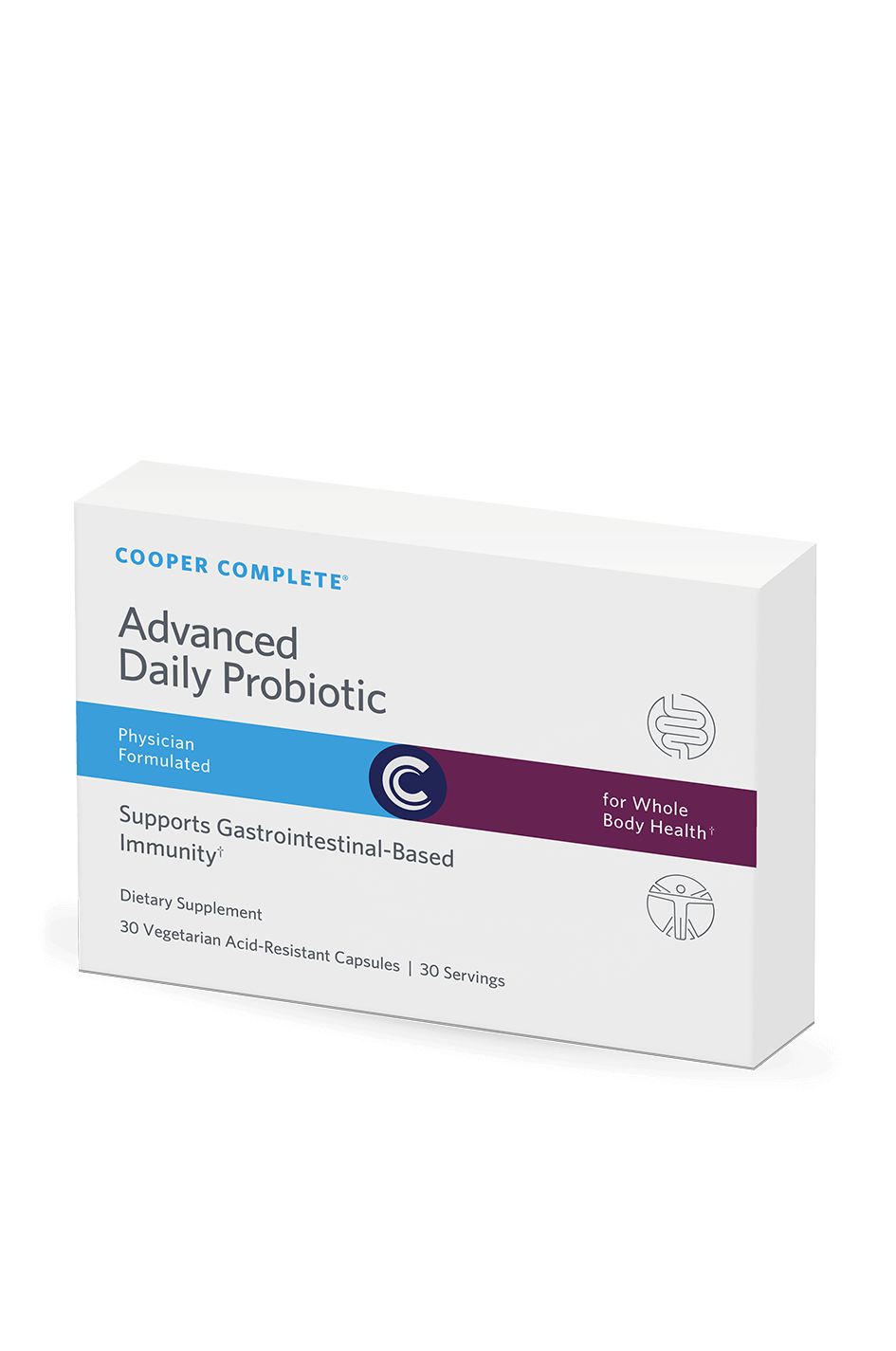Best Vitamins for College Students

Eating healthy can be a challenge for all of us, but it can be especially hard for college students. Crowded dorms, part-time jobs, reduced sleep and added stress weaken immune systems. Due to these factors, vitamins for college students help supplement a diet strained from changes in eating habits.

Advanced B Complex Supplement
Advanced Vitamin B Complex supplement contains the activated, methylated, most easily absorbable forms of eight essential B vitamins, including biotin and folate, to support cellular energy production and immune, cardiovascular, and neurological health.†
$23.68 Add to cartVitamins that Support Energy, Immunity, and Stress for College Students
B Complex Provides College Students With Energy
B vitamins (B6, B12, riboflavin, thiamin, niacin, and folic acid) are part of a group of vitamins that create energy in the form of glucose from carbohydrates. Unfortunately, the body cannot produce these vitamins on its own. Therefore, the body obtains these vitamins through diet and supplementation. Here’s a list of benefits provided by B vitamins.
- Thiamin (B1) is required to help the body use carbohydrates
- Riboflavin (B2) powers cells to produce energy from other nutrients
- Niacin (B3) boosts good cholesterol and lowers triglycerides
- Pantothenic Acid (B5) supports a healthy digestive tract
- Vitamin B6 (pyridoxine) takes B12 and creates cells in the immune system
- Biotin (B7) helps form building blocks of enzymes to break down food
- Folic acid (B9) is necessary for the body to create new cells
- Vitamin B12 creates DNA and helps produce red blood cells
[Bonus: Learn more about the health benefits of the various B vitamins.]
Vitamin D Boosts Immunity
To determine which vitamins for college students improve immunity, we decided to look at research focused on low vitamin D levels. Several research studies cited by the Harvard School of Health aimed at finding the consequences of low vitamin D levels in winter months. They found:
- Children with rickets, associated with low vitamin D levels, are more likely to get respiratory infections.
- Children exposed to sunlight seem to have fewer respiratory infections.
- Adults with low vitamin D levels are more likely to report a recent cough, cold, or upper respiratory tract infection.
This falls in line with the common guidance of taking vitamin D supplements in the winter months, as winter sunlight is often not intense enough to produce adequate vitamin D levels.
Vitamin D is important as it facilitates normal immune system function. Vitamin D supplementation supports immunity, muscle function, and brain cell activity.
[Bonus: Learn what the research on vitamin D and immunity says.]

Advanced Daily Probiotic Supplement
Advanced Daily Probiotic supplement contains a proprietary blend of 4 strains and 35 billion CFU probiotics to support gut microflora and immune health.†
$46.98 Add to cartOmega-3 Supplements Reduce Inflammation
Omega-3’s ability to reduce inflammation and improve heart health makes it one of the best supplements for college students in managing stress.
The American Heart Association urges eating fatty fish such as salmon at least two times per week. Salmon, on average, has 1.3 to 1.9 g of total omega-3 in a three-and-a-half-ounce cooked portion. In comparison, two Advanced Omega-3 soft gels contain 1.4 g of the long-chain omega-3 fatty acids EPA and DHA. If your college student isn’t eating seafood on a regular basis, an omega-3 supplement is a good idea.
Inflammation is another side effect of stress that hampers the hormone cortisol from properly regulating inflammation. As a result of this process, inflammation has been linked to heart disease and type 2 diabetes.
[Bonus: Take a deep dive into understanding chronic inflammation and what supplements may help.]
Probiotics Support Gut Health and Immune Function
While the gut benefits of probiotics are regularly touted, the benefits of probiotics go beyond the gut and support immune health. Research has also found probiotics ease seasonal allergy symptoms and support reduced frequency, severity, and duration of migraine headaches. A good probiotic helps maintain a healthy gut.
[Bonus: Learn seven health benefits of probiotics.]
Daily Multivitamin Addresses Dietary Shortfalls
Researchers at Oregon State University surveyed 582 college students, with a large number of first-year students in the group. Ultimately, the study found these college students ate less than five servings of fruit and vegetables in a week! Compare this to the U.S. Dietary Guidelines that recommend college-aged adults consume approximately five cups of fruits and vegetables each day.
Above all, supplements are not intended to replace a healthy diet and lifestyle. Rather, a daily multivitamin for college students helps address nutritional inadequacies that may occur when college students are suddenly away from home. While we believe getting nutrients from a healthy, balanced diet is ideal, this is not the case for many college students. Basic One Multivitamin can help support college students’ diets with the right amount of vitamins and minerals for optimum health.
[Bonus: Learn 10 reasons your college student may need a supplement.]
Article provided by Cathy Sides, Director of Customer Relations, Cooper Concepts Inc.
